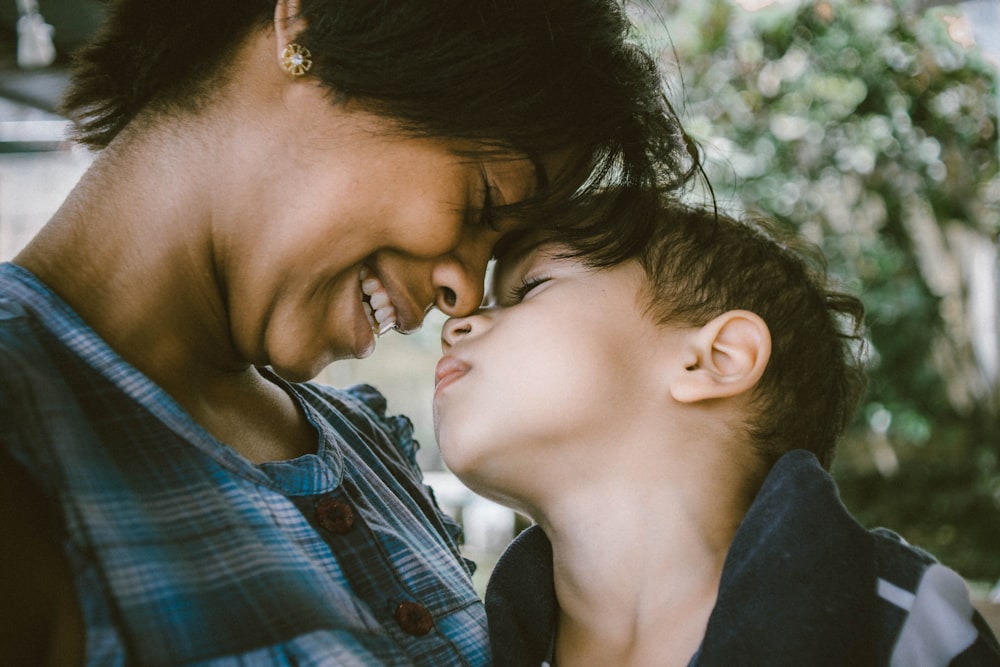8 Strategies for Parenting Highly Sensitive Children
An important point to note is that as a parent, you almost certainly know more than anyone else about your child’s sensitivity. Parenting involves success and challenges as well, and you need to find the best way of dealing with your child’s needs to ensure that they grow healthy and strong.

Specially sensitive children (HSC) possess a unique array of traits that set them apart. They exhibit remarkable attentiveness, intuition, and empathy due to their heightened emotional, sensory, and cognitive perceptions of the world. Yet, prevailing perspectives often underestimate their profound inner lives and the intensity of their emotional responses, simplifying them merely as shy or introverted.
Emotional sensitivity is usually viewed negatively. For instance, "Stop crying," "You're overreacting," as well as "Just toughen up" are all too common phrases to an average highly sensitive kid. What if we changed the way we perceive these children who are 'more sensitive'?
Raising a highly responsive child isn't about making their sensitivity less intense. Instead, it involves not just sharing with them what their minds do but also teaching them the skills to not only regulate themselves but also flourish in all situations.
8 Most Common Highly Sensitive Child Traits
Children are born with their innate temperaments, and sensory processing sensitivity is a biological characteristic, not a disorder. In any case, your child is not the issue. They just respond to and perceive the world differently.
1. Intense Emotions
Highly sensitive children tend to feel a spectrum of emotions more intensely and often find it hard to remain calm. Whatever the circumstance, they show more intense reactions, which can make them more sensitive to both people and their surroundings. Therefore, your kid could get very excited or have a huge tantrum over things that to others are nothing.
2. Sensory Challenges
About 20% of people fall into the category of highly sensitive or Sensory Processing Sensitivity. Did you notice if your kid is very sensitive to how their clothes feel and don't like certain foods anymore? In addition, they could be sensitive to loud noises.
Highly sensitive children are typically more sensitive to all sensory stimuli, including sights, sounds, tastes, smells, and textures. For example, my son does not like the smell of the car in the morning and insists on not wearing underwear.
Such sensory sensitivities can have a snowball effect. For instance, if your kid is tired, he might have trouble with loud sounds more than usual. Likewise, on days when school is over-stimulating, they may have an after-school meltdown if you ask them to share their day's experience.
3. Active Minds
Does your kid usually ask a lot of questions and look for truthful answers? The highly sensitive children tend to be persistent and smart, and they often use their time to contemplate and reflect on things. They have strong memorability, so don't be surprised when they remember the promises you made, like jumping on the trampoline "later."
4. Desire for Control
A strong memory is like a coping mechanism for highly sensitive children, which they rely on to see what to anticipate in different situations. While under pressure, they might become bossy and search for external control to get rid of internal turmoil. Such strictness and inflexibility are only used to feel more secure in the face of an unknown situation. For example, he wants to know what I put in his lunchbox each day so that he can be ready for snack breaks.
5. Apprehensive and Cautious
An extremely sensitive child can get scared about new circumstances. They would most probably be shy and tend to think before they interact. One more is that they are affected by anxiety and separation anxiety.
They often choose to be quiet and make few friends, especially when they are in playgrounds with so many other kids. They seem to have this special intuitive risk evaluation radar within them which enables them to analyze new and unfamiliar situations.
6. Perfectionism
Tender children experience difficulty when things can't be done as intended. They attribute the loss to their incompetence and dislike losing. Competitive games might be a barrier when the emotions may be uncontrollable when the outcomes don't match their expectations.
On the other hand, sensitive children may also tend to have low frustration tolerance. They can leave a task when they meet failure, which highlights the significance of instilling grit and resilience in their developmental process.
7. Empathy
Your empathetic kid shows an exceptional ability to understand other people's feelings. They keenly observe their surroundings, noticing the minutest details and reading others' body language. They possess an innate ability to read people's thoughts and feelings even though it can become burdensome sometimes because they experience other people's emotions directly.
8. Self-Awareness
Highly sensitive children often take things personally and may be highly self-conscious. For instance, my son felt deeply embarrassed and upset after slipping and falling into a muddy puddle, despite our laughter being directed at the situation rather than him. We've since learned he's more sensitive to perceived ridicule than we realized.
Strategies for Parenting Highly Sensitive Children
An important point to note is that as a parent, you almost certainly know more than anyone else about your child’s sensitivity. Parenting involves success and challenges as well, and you need to find the best way of dealing with your child’s needs to ensure that they grow healthy and strong.
Primarily with young kids, ensuring that they have considerable encouragement and self-efficacy is of great importance. If you think you need professional help, you might want to seek a trusted child psychologist.
1. Encourage Open Communication to Normalize Feelings
By fostering the conversation about feelings, touchy kids can build emotional intelligence and have a good rapport with their emotions. Role modelling healthy emotional expression and communication teaches children that it is normal and ok to have a range of emotions and appropriately express them.
Why is mindfulness practice particularly helpful for highly sensitive children who are coping with strong emotions and even anxious feelings? Getting to see their parents' emotional expression and communication teaches them to recognize and control their feelings, and encourages them to develop self-confidence and resilience.
2. Set up Structure and Routine
A routine that is consistent for highly sensitive children provides them with stability as well as predictability in the environment, and as a result, they can get rid of the stress and anxiety that are associated with change and unpredictability. A predictable routine helps children to develop good habits and coping strategies thus such children can cope better with their tasks and feel more secure.
3. Affirm Your Child's Feelings
A child with high sensitivity can have difficulties in processing and expressing strong emotions. Expressing understanding of their feelings by accepting them without criticizing or judging them makes them feel understood and supported. Active listening, empathy, and reflection communicate to the children that their feelings are legitimate and deserve consideration.
4. Give a Safe Space
Sensitive kids may get quickly overstimulated and need quiet breaks to recharge. Creating a specific safe area, whether it is physical or mental, helps the child to hide and reassemble when feeling overwhelmed, which in turn leads to the development of emotional regulation and a feeling of being in control.
5. Slowly Introduce Them to New Experiences
While it is imperative to ensure safety, blocking children from all external cues may impede their development of resilience and adaptation skills. Through the gradual introduction of new experiences and challenges, the more sensitive kids can learn problem-solving skills and emotional resilience that will help them build their confidence and self-esteem.
6. Make Silent Moments a Regular Part of Their Day
Quiet time provides space for sensitive children to rejuvenate and to determine and process their feelings and experiences. Activities which are soothing to children like reading, drawing or quiet reflection are considered helpful in the development of self-awareness and self-care habits.
7. Use Positive Reinforcement and Peaceful Instruction
Sensitive children are likely to be most affected negatively by criticism and negative comments, which can diminish their self-esteem. Rather than administering a severe punishment, use positive reinforcement and kind guidance for the development of good conduct and problem-solving skills.
8. No Power Struggles Through Cooperation
As for fragile children, they may be influenced by conflict and stress more and require a collaborative problem-solving approach. Allowing choices and alternatives gives power to children and enables them to feel their agency, thus improving their confidence and emotional health.
In essence, providing for highly sensitive children entails the establishment of an environment that is caring and supportive of their special needs while gradually introducing them to new experiences so that they can develop into adaptive and resilient individuals. Through the use of these tactics, parents can equip their sensitive kids with the courage and self-esteem to live in the world.
What's Your Reaction?












![Wireless Connectivity Software Market Size, Share | Statistics [2032]](https://handyclassified.com/uploads/images/202404/image_100x75_661f3be896033.jpg)




